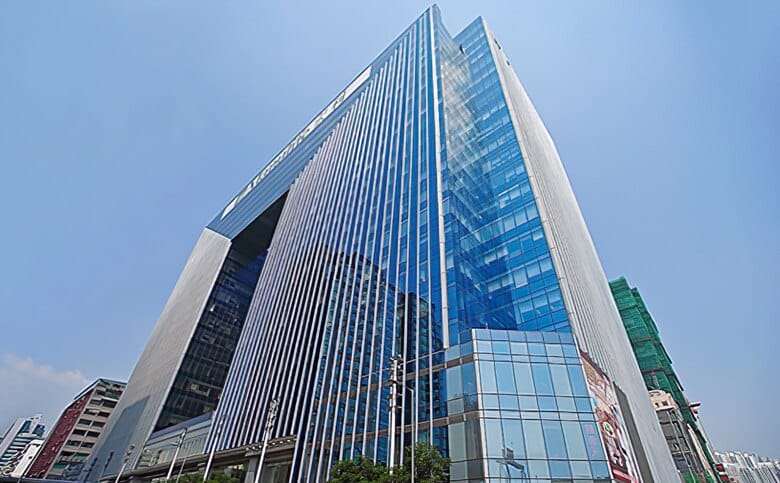
HKUST took up office space at Manulife Financial Centre (Image: Henderson Land)
Grade A office rents in Hong Kong were down 5.9 percent in the year to date as of mid-November, according to Cushman & Wakefield, and the consultancy predicts as much as a 9 percent drop in 2025.
In the fourth quarter of 2024 to mid-November, tenants citywide took up 46,000 square feet (4,274 square metres) more Grade A office space than they gave back, marking a fifth straight quarter of positive net absorption, Cushman & Wakefield said in an update. Year-to-date net absorption rose to more than 1 million square feet, the highest level since 2019.
Grade A leasing sentiment in the short to medium term will depend on the overall economic recovery and the performance of the local IPO and stock markets, which could support demand from related and downstream industries, said John Siu, managing director for Hong Kong at Cushman & Wakefield.
“However, as total Grade A office supply is expected to reach 3.5 million square feet next year, the availability rate is expected to stand at above 20 percent, and overall Grade A office rents will continue to decline by 7 percent to 9 percent in 2025,” Siu said.
Education Uplift
With no major office projects completed during the fourth quarter, the overall availability rate edged down to 19.2 percent in a second straight quarter of decline, Cushman & Wakefield said.

John Siu, managing director for Hong Kong at Cushman & Wakefield
The agency said new lettings in the quarter were driven mainly by the banking/finance sector, accounting for 33 percent of total leased area. Notably, demand from the education sector rose to 12 percent of total leased area, with the Hong Kong University of Science and Technology and the University of Hong Kong respectively committing to more than 10,000 square feet of office space at Manulife Financial Centre and Kingston International Centre in Kowloon East.
In the retail market, the high street vacancy rate across core districts fell to 7.6 percent amid continued leasing activity from both local and mainland Chinese brands. Causeway Bay recorded a vacancy rate of 0 percent for the first time since 2019, suggesting brands were willing to return to traditional tourist-oriented districts as rents adjust, the consultancy said.
High street retail rents across districts saw increases ranging from 3 percent to 7 percent in the year to date, with Central and Tsim Sha Tsui both registering an increase of 6.7 percent.
“While high street leasing activity in core districts has become more active, retailers have remained cautious with their expansion strategies, given the uncertainty surrounding the changing spending habits of consumers,” Siu said. “We believe leasing demand in the coming year will mainly be driven by Chinese mainland brands who view Hong Kong as a key stepping stone to promote their brands on the international stage, gradually absorbing vacant space on high streets.”
Student Housing Focus
Cushman & Wakefield forecasts residential volume to reach 53,800 transactions for the whole of 2024, driven by the recent rate cut and the relaxation of loan-to-value rules.
“Looking ahead to 2025, if interest rates continue to stay on a downward trend, and the stock market remains stable, we expect residential transaction volume will increase by 5 percent to 8 percent to a level of 56,000-58,000 units, supporting an overall price rebound in the range of 5 percent,” said Rosanna Tang, executive director and head of research for Hong Kong.
In the capital market, year-to-date transaction volume of non-residential big-ticket deals totalled just HK$28.5 billion ($3.7 billion) as of 6 December. The student housing sector is expected to remain a key focus of investors in 2025, according to the consultancy.
“Following the renewed influx of expat talent and non-local students, demand for co-living properties, multi-family assets and student accommodation has continued to rise,” said Tom Ko, executive director and head of capital markets for Hong Kong. “Furthermore, the latest Hong Kong Policy Address encourages the private sector to convert hotels and commercial buildings into student housing, and we believe this sector will continue to be sought-after in the coming year, particularly for those assets in prime locations with conversion potential.”

Leave a Reply